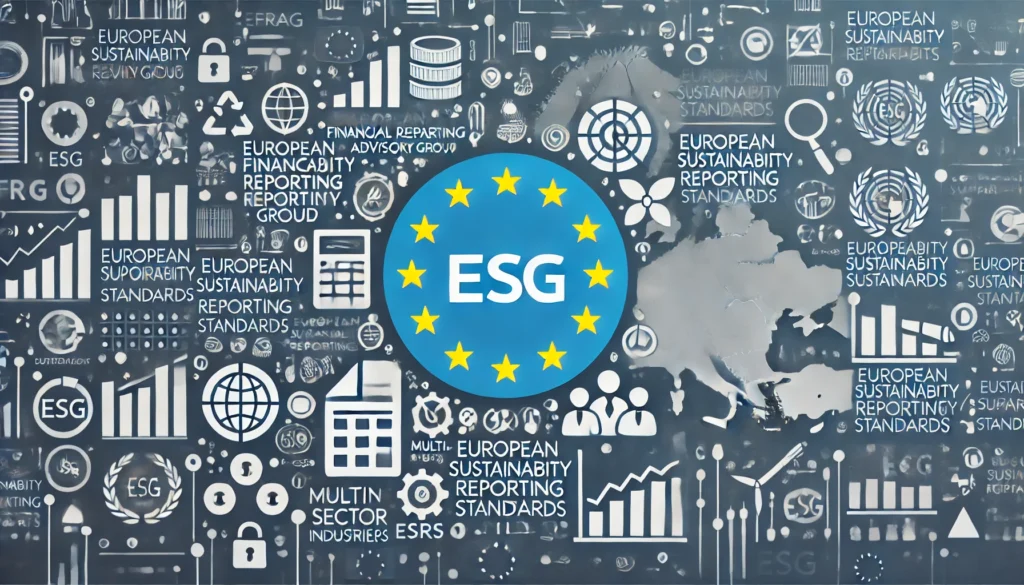European Financial Reporting Advisory Group Publishes Implementation Guidance on the ESRS and Updated Q&A

Introduction
The European Financial Reporting Advisory Group (EFRAG) has recently published implementation guidance on the European Sustainability Reporting Standards (ESRS), alongside an updated Q&A section. These resources aim to aid companies across various sectors in understanding and adhering to the new sustainability reporting requirements set by the ESRS. This article will explore the key aspects of the implementation guidance, the significance of the updated Q&A, and the broader implications for multi-sector compliance.
Background on ESRS
The European Sustainability Reporting Standards (ESRS) are a set of requirements designed to standardize sustainability reporting across Europe. Developed in response to increasing demands for transparency and accountability in corporate environmental, social, and governance (ESG) practices, the ESRS seeks to provide a consistent framework for reporting sustainability-related information.
Key Components of the Implementation Guidance
The newly published implementation guidance by EFRAG offers detailed instructions on how to apply the ESRS in various business contexts. Key components include:
- Scope and Applicability: The guidance clarifies which entities are required to comply with the ESRS and the specific sectors impacted.
- Reporting Requirements: Detailed explanations of the specific sustainability metrics and indicators that companies need to report.
- Data Collection and Management: Best practices for gathering, managing, and verifying sustainability data to ensure accuracy and reliability.
- Disclosure Practices: Recommendations on how to effectively disclose sustainability information to stakeholders, including investors, regulators, and the public.
Updated Q&A Section
In addition to the implementation guidance, EFRAG has also released an updated Q&A section. This resource addresses common questions and concerns that companies may have regarding the ESRS. Key topics covered in the Q&A include:
- Clarifications on Reporting Standards: Detailed answers to specific queries about the ESRS reporting requirements and standards.
- Practical Examples: Real-world examples and case studies illustrating how companies have successfully implemented the ESRS.
- Compliance Deadlines: Information on important deadlines and timelines for ESRS compliance.
- Support and Resources: Guidance on where to find additional support and resources for implementing the ESRS.
Multi-Sector Implications
The implementation guidance and updated Q&A have significant implications for companies across various sectors. By providing clear and comprehensive instructions, EFRAG aims to facilitate a smoother transition to ESRS compliance. Key sector-specific impacts include:
- Financial Sector: Enhanced transparency and accountability in ESG reporting, leading to better risk management and investment decision-making.
- Manufacturing Sector: Improved sustainability practices and reduced environmental impact through standardized reporting.
- Retail Sector: Increased consumer trust and loyalty through transparent disclosure of sustainability efforts.
Conclusion
The publication of the implementation guidance and updated Q&A by EFRAG marks a significant milestone in the journey towards standardized sustainability reporting in Europe. By offering detailed instructions and addressing common concerns, these resources aim to support companies in their efforts to comply with the ESRS and enhance their ESG practices. As the implementation of the ESRS progresses, it is expected to drive greater transparency, accountability, and sustainability across multiple sectors.
Interested in speaking with our consultants? Click here to get in touch
Some sections of this article were crafted using artificial intelligence technology
